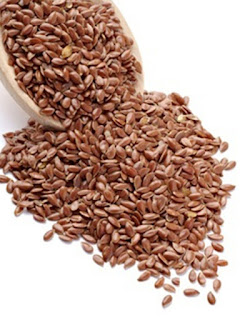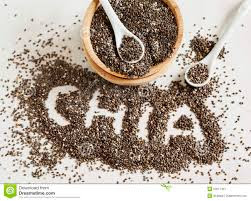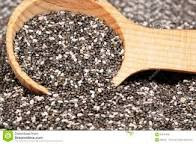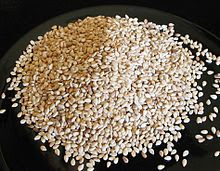Creatine 101: what is creatine advantages ,disadvantages, dosage,side effects ,muscle growth ,weight gain
What is creatine?
Your body actually makes its own creatine, by way of your kidney and liver, after you eat protein. Your muscles then convert creatine into creatine phosphate, which is then generated into adenosine triphosphate (ATC), which your body uses for explosive exercise.
Supplement manufacturers have made creatine intake more efficient. Instead of consuming pounds of protein, all you have to do is take the nutrient in powdered, liquid, or pill form. Ways to require It
Your body naturally produces creatine with three amino acids: glycine, methionine and arginine. However, it's neither produced or stored in large amounts naturally. During exercise, especially high intensity training, creatine stores deplete rapidly. Creatine monohydrate are often supplemented into your routine to assist increase physical performance during short term, high intensity activity and prolong depletion.
Creatine supplements generally are available two different forms: a capsule and a powder, although you'll also get creatine protein bars. A maintenance dose of creatine is around 3g per day, which may be weighed call at powder, or taken as a capsule(s). The powder is typically mixed with a liquid and consumed as a drink. Timings can vary, but some people find it beneficial to supplement pre-workout, or immediately after workout.
Pre-Workout
When supplemented pre-workout, creatine powder is typically mixed with a high-sugar sports drink. Creatine levels can deplete rapidly during exercise, so supplementing around half-hour or 1 hour before your workout gives your body the prospect to digest it and put it to use during your workout. Creatine supplementation can support your exercise performance when 3g of creatine is consumed daily – it also helps to prolong depletion during your workout.
Post-Workout
Taking creatine immediately after your workout could even be a standard time to supplement, and it helps maximise the advantages of creatine. It helps to replenish the creatine stores in your muscles that have depleted during your workoutTypes Of Creatine
Types Of Creatine
Creatine is one of the foremost widely researched supplements. There are many sorts of creatine supplements available today which help to support your exercise performance so as that you are going to still train at an optimum level for the entire duration of your workout, by slowing down the depletion of creatine stores. This guide sets out the some creatine variations and what all of them mean:
Buffered Creatine
Also trademarked as Kre-Alkalyn, this is often often pH-corrected creatine within the type of creatine monohydrate mixed with bicarbonate of soda (or bicarbonate of soda as its otherwise known).
Creatine Citrate
This is creatine that's bound to acid , with around 40 per cent creatine making up the solution .
An alternative to creatine getting utilized in liquid solutions, effervescent creatine comprises of creatine monohydrate, acid and bicarbonate.
Creatine Ethyl Ester
Usually shortened to CEE, creatine ethyl ester is an addition of an ethyl to creatine. Creatine ethyl ester tablets and powder are both available.
Glycosylated Creatine
A newer kind of creatine compared to many on this list, glycosylated creatine stands out thanks to the polyethylene glycol.
Creatine Hydrochloride
Often shortened to HCI, creatine hydrochloride is creatine that's bound with acid which turns into a basic creatine molecule once within the stomach.
Creatine Magnesium Chelate
Creatine magnesium chelate is creatine that's bound to magnesium.
Creatine Malate
Creatine malate is made from creatine that's bound with malic acid.
Di-Creatine Malate
This is a sort of creatine that consists of two creatine molecules, which are then bonded with one molecule of malic acid. it's more water soluble than regular creatine monohydrate.
Tri-Creatine Malate
Similar to di-creatine malate, though tri-creatine malate is formed from three creatine molecules bonded with one molecule of malic acid. it's more water soluble than regular creatine monohydrate.
Micronized Creatine
Micronized creatine could also be a variation of creatine that produces smaller particles than standard creatine powder, imagined to aid absorption and mixability.
Creatine Nitrate
A type of creatine that's bound with a nitrate group — creatine nitrate is supposed to increase water solubility.
Creatine Phosphate
Made from around 60 per cent creatine, phosphocreatine works on the concept that creatine must bond with a phosphate group to become phosphocreatine .
Creatine Pyruvate
Creatine pyruvate is made from creatine that's bound with pyruvic acid; a colourless, water-soluble and organic liquid that supplies energy to living cells through the acid cycle — or the Krebs cycle — whenever oxygen is present.
Creatine Monohydrate
Taking the form of creatine with a water molecule, creatine monohydrate is that the foremost generally studied kind of creatine on the market today – and one of the foremost common creatine supplements. As a supplement it are often mixed with a high sugar sports drink and brought before, during or after your workout to help prolong depletion of creatine stores in your muscles. When 3g of creatine are consumed per day, it can increase your exercise performance during repeated short, intense bursts of exercise.
What Is Creatine Loading?
If you eat a daily diet containing meat and fish, your muscle stores of creatine are likely only 60–80% full (1Trusted Source).
However, it’s possible to maximise your creatine stores by using supplements.
Trainers normally recommend a creatine loading phase to rapidly maximize your muscle stores. During this phase, you consume a relatively batch of creatine during a brief period to rapidly saturate your muscles.
For example, a typical approach is to need 20 grams of creatine daily for 5–7 days. This dose is usually divided into four 5-gram servings throughout the day.
Research shows that this regimen can effectively boost creatine stores by 10–40% (2, 3, 4Trusted Source).
After the loading phase, you'll maintain your creatine stores by taking a lower dose of creatine, which ranges from 2–10 grams daily (3).
 |
ADVANTAGES
* Safely increases muscle mass, strength, and exercise performance
* Reduces post-exercise fatigue
* Great for power training
* Protects the brain
DISADVANTAGES
* High doses may cause stomach discomfort or nausea.
Top 10 benefits of creatine
- 1.Helps Muscle Cells Produce More Energy: Supplementing with creatine can provide additional ATP energy, which improves high-intensity exercise performance.
- 2. Supports Many Other Functions in Muscles: It can alter numerous cellular pathways that cause new muscle growth, including boosting the formation of proteins that make new muscle fibers. It also can increase IGF-1 levels and stimulate the Akt/PKB pathway. These send a sign to your body to create muscle mass. Creatine Monohydrate also can increase the water content of your muscles. this is often referred to as cell volumization, and may quickly increase the dimensions of muscles.
- 3. Improves High-Intensity Exercise Performance: Creatine's direct role in ATP energy production means it can drastically improve high-intensity exercise performance. Studies have shown creatine can improve numerous factors to assist you perform better, including:
- * Strength
- * Ballistic power
- * Sprint ability
- * Muscle endurance
- * Resistance to fatigue
- * Muscle mass
- * Recovery
- * Brain performance
- Unlike supplements that only benefit advanced athletes, creatine provides benefits no matter your fitness level. Reviews find it improves high-4. accelerates Muscle Growth: Creatine is that the world's best supplement for adding muscle mass. Taking it for as little as five to seven days has been shown to significantly increase lean weight and muscle size. this first rise is caused by increased water content within the muscle. Over the future , it also aids in muscle cell growth by signaling key biological pathways and increasing weights and performance within the gym. In one study, participants followed a six-week training regimen. Those using creatine added 4.4 lbs (2 kg) more muscle mass, compared to those that didn't . A comprehensive review demonstrated a transparent increase in muscle mass, compared to those performing an equivalent training regimen without creatine.
- 4. May Help With Parkinson's Disease: paralysis agitans is characterized by a discount in brain levels of a key neurotransmitter called dopamine. the massive reduction in dopamine levels causes nerve cell death and a number of other serious symptoms, including tremors, loss of muscle function and speech impairments. Creatine has been shown to possess beneficial effects on Parkinson's in mice, preventing 90% of the drop by dopamine levels. In an effort to treat the loss of muscle function and strength, Parkinson's patients often perform weight training. In humans with paralysis agitans , combining creatine with weight training improved strength and daily function to a greater extent than training aloneintensity exercise performance by up to fifteen .
- 5. accelerates Muscle Growth: Creatine is that the world's best supplement for adding muscle mass. Taking it for as little as five to seven days has been shown to significantly increase lean weight and muscle size. this first rise is caused by increased water content within the muscle. Over the future , it also aids in muscle cell growth by signaling key biological pathways and increasing weights and performance within the gym. In one study, participants followed a six-week training regimen. Those using creatine added 4.4 lbs (2 kg) more muscle mass, compared to those that didn't . A comprehensive review demonstrated a transparent increase in muscle mass, compared to those performing an equivalent training regimen without creatine.
- 6. Can Improve Brain Function: Creatine plays a crucial role in brain health and performance . Research has shown that the brain requires a big amount of ATP energy when performing difficult tasks. Supplements can increase phosphocreatine stores within the brain and help the brain produce more ATP. Creatine can also aid brain function by increasing dopamine levels and therefore the function of mitochondria. Meat is that the best dietary source of creatine, and vegetarians often have low levels because they avoid meat. One study on creatine supplements in vegetarians found a 20-50% improvement in some memory and IQ test scores. For the elderly, fortnight of taking creatine supplements significantly improved memory and recall ability. along side other studies, this research suggests creatine is extremely beneficial for the elderly. it's going to help with brain function, reduce the age-related loss of muscle and strength, and protect against neurological diseases.
- 7. May Reduce Fatigue or Tiredness: Creatine supplements can also reduce fatigue and tiredness. one among the foremost notable studies so far followed traumatic brain injury patients for 6 months. those that supplemented had a 50% reduction in dizziness, compared to those that didn't . Furthermore, only 10% of patients within the supplement group suffered from fatigue, compared to 80% within the control group. Another study found that creatine led to reduced fatigue and increased energy levels during sleep deprivation. Creatine also can reduce exercise-induced fatigue in athletes during a cycling test, and has been wont to decrease fatigue when exercising in high heat.
- 8. Is Safe and straightforward to Use: along side the various benefits outlined during this article, creatine is additionally one among the most cost effective and safest supplements you'll find.
What are the benefits of creatine?
Creatine is assumed to enhance strength, increase lean muscle mass, and help the muscles recover more quickly during exercise. This muscular boost may help athletes achieve bursts of speed and energy, especially during short bouts of high-intensity activities like weight lifting or sprinting.
Does creatine affect you sexually?
What's better creatine or whey protein?
While both creatine and whey protein promote muscle gain, they differ within the ways they work. Creatine increases strength and muscle mass by increasing exercise capacity, whereas whey protein does so by stimulating increased muscle protein synthesis.
Is creatine better than BCAA?
For those with low protein intake, BCAAs can provide a reasonable , low calorie and straightforward thanks to promote muscle protein synthesis. Creatine, on the opposite hand, can help provide rapid energy and functions more for strength building could also be the selection of these of you who are powerlifting for instance .
When should I drink creatine?
On workout days, research shows that it may be better to take creatine shortly before or after you exercise, rather than long before or after. On rest days, it's going to be beneficial to require it with food, but the timing is perhaps not as important as on exercise days.
Do creatine make you bigger?
Despite causing some water weight gain, research has found that creatine can be an effective supplement for increasing endurance and strength. Over time, you'll see a rise in your muscle strength and size. Increased muscle mass will also tip the scale upward.
Does creatine boost testosterone?
Creatine does not increase testosterone levels.
While creatine does elevate DHT (Dihydrotestosterone) and somatotropin (GH) during physical activity, creatine doesn't improve resting hormonal concentration.
A creatine loading phase could also be the fastest thanks to enjoy the supplement's effects. Research proves that a creatine loading phase can maximize your muscle stores within one week or less
Should I take creatine every day?
Taking too much creatine is futile
After your muscles are fully saturated with creatine, it's recommended to take 3–5 grams (14 mg/pound or 30 mg/kg) daily to maintain optimal muscle stores
Does creatine work immediately?
May Provide Quicker Results
A creatine loading phase could also be the fastest thanks to enjoy the supplement's effects. Research proves that a creatine loading phase can maximize your muscle stores within one week or less
Is creatine bad for teens?
Both the American Academy of Pediatrics and therefore the American College of medicine are in agreement that teenagers shouldn't use performance-enhancing supplements, including creatine
Does creatine make you stronger?
Creatine can help make you stronger.
Several studies have shown that creatine supplementation leads to strength gains. In a meta-analysis of twenty-two studies on creatine, researchers found that individuals who use it show an 8% increase in strength compared to those that don't
At the top of the day, creatine is an efficient supplement with powerful benefits for both sports performance and health.
What's more, supplementing is extremely easy. Simply take 3–5 grams of creatine monohydrate powder per day
C























Introduction